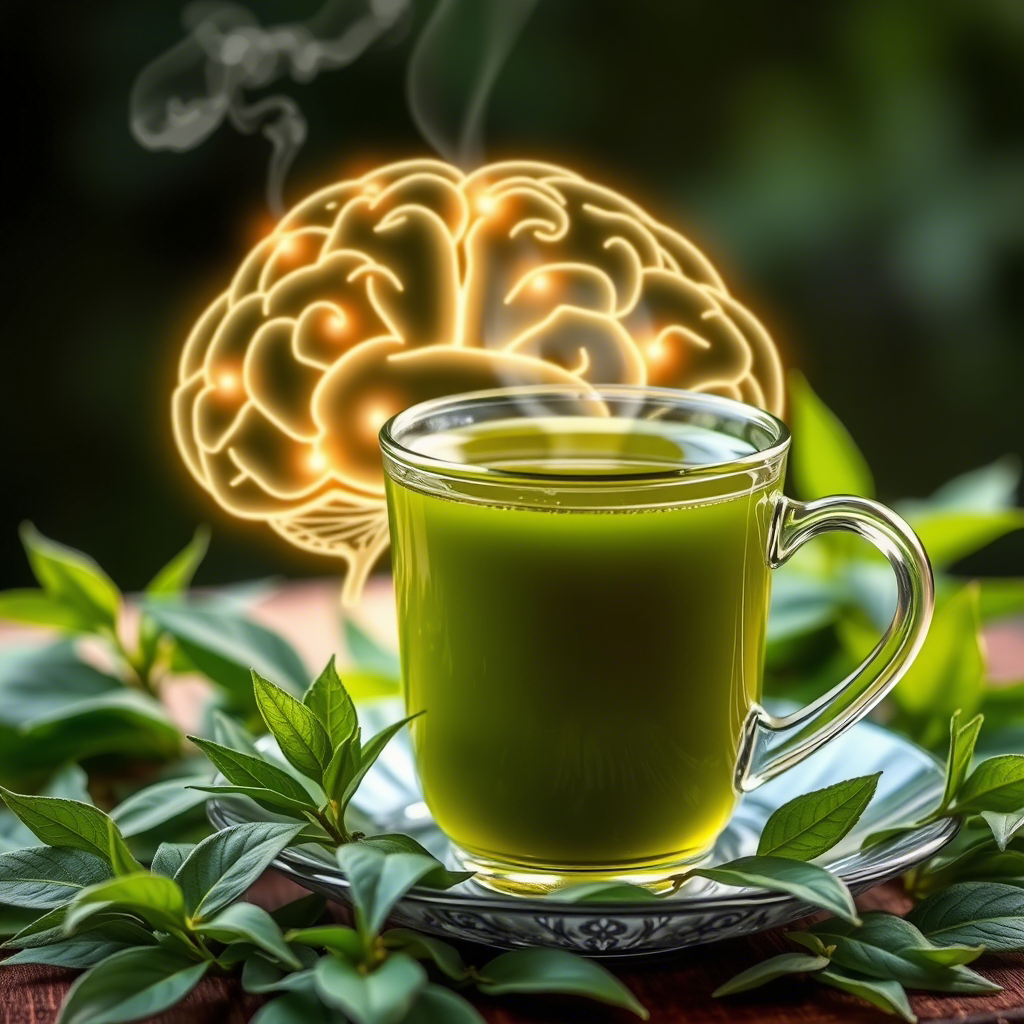A recent study published in the Nature Portfolio Journal Science of Food suggests that higher green tea consumption may be linked to fewer lesions in the cerebral white matter, a hallmark of dementia. This finding adds to the growing body of research exploring the potential cognitive benefits of green tea and other beverages like coffee.
The Neuroprotective Power of Green Tea
Green tea is rich in catechins, particularly epigallocatechin gallate (EGCG), which have been shown to exhibit neuroprotective effects. These compounds help scavenge free radicals, reduce inflammation, and inhibit the aggregation of amyloid β, a protein associated with Alzheimer’s disease.
Similarly, coffee contains compounds like chlorogenic acid and caffeic acid, which also possess antioxidant and anti-inflammatory properties.
Epidemiological studies have long suggested that regular consumption of tea or coffee may reduce the risk of age-related cognitive decline. Dementia, a neurodegenerative condition, is characterized by structural changes in the brain, including atrophy and an increase in cerebral white matter lesions.
Previous research has indicated that green tea consumption may slow hippocampal atrophy, while coffee consumption has been linked to increased cortical thickness in certain brain regions.
Study Design and Findings
The study, conducted as part of the Japan Prospective Studies Collaboration for Aging and Dementia (JPSC-AD), involved 8,766 community-dwelling older adults without dementia. Participants underwent brain MRI scans to assess cerebral white matter lesions, hippocampal volume, and total brain volume. They also completed a Food Frequency Questionnaire to report their daily intake of green tea and coffee.
Key findings from the study include:
- Green Tea: Higher daily green tea consumption (600–1500 ml) was significantly associated with fewer cerebral white matter lesions. However, no significant links were found between green tea intake and hippocampal or total brain volumes.
- Coffee: No significant associations were observed between coffee consumption and cerebral white matter lesions, hippocampal volume, or total brain volume.
The study also noted that participants with higher green tea intake tended to have healthier lifestyles, including more regular exercise, better cognitive function, and lower rates of smoking and alcohol consumption. In contrast, higher coffee intake was associated with higher rates of diabetes, smoking, and cardiac abnormalities.
Potential Mechanisms Behind Green Tea’s Benefits
Cerebral white matter lesions are a known risk factor for cognitive decline and are associated with conditions like vascular dementia and Alzheimer’s disease. Hypertension, or high blood pressure, is a major contributor to these lesions.
The study suggests that green tea’s antihypertensive effects may play a role in reducing white matter lesions. Meta-analyses referenced in the study indicate that regular green tea consumption can lower systolic blood pressure by an average of 6.22 mmHg and diastolic pressure by 2.36 mmHg.
Limitations and Future Research
The study’s findings were most pronounced in individuals without depression or the ApoE ε4 allele, a genetic risk factor for dementia. This suggests that green tea’s protective effects may be less effective in those at higher risk for cognitive decline. Additionally, the study focused exclusively on an older Japanese population, limiting its generalizability to other ethnicities and regions.
Further research is needed to confirm these associations in more diverse populations and to explore whether green tea’s benefits extend to individuals with depression or genetic predispositions to dementia.
Conclusion
The study highlights the potential cognitive benefits of green tea, particularly in reducing cerebral white matter lesions, a key factor in age-related cognitive decline. While coffee did not show similar associations in this study, both beverages contain compounds with neuroprotective properties that warrant further investigation.
For now, incorporating green tea into your daily routine may offer a simple, natural way to support brain health—especially if you’re looking to reduce your risk of cognitive decline. However, as with any dietary change, it’s important to consider individual health factors and consult with a healthcare professional.
Key Takeaways:
- Higher green tea consumption is linked to fewer cerebral white matter lesions, a risk factor for dementia.
- Green tea’s catechins, particularly EGCG, exhibit neuroprotective effects by reducing inflammation and oxidative stress.
- Coffee consumption did not show significant associations with brain changes in this study.
- Green tea’s antihypertensive effects may contribute to its cognitive benefits.
- Further research is needed to confirm these findings in diverse populations and high-risk groups.


